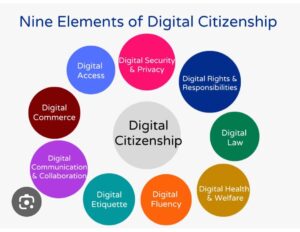There was no use of internet when I went to school, but computers were used for the research purposes lately, during my secondary education. We used to study physical books and get prepared for the final exams. There was a long distance education available though, but not online. For long distance education, students had some designated schools/institutions in their own city, to have their classes in-person. Though there were no cyber safety issues for the learning, I remember there were some safety concerns regarding use of some social media apps, either on phone or on computer. Facebook was trending as we have tik tok or Instagram these days. It was pretty convenient to reach other people’s personal picture galleries from Facebook through their friend’s list. It was considered to avoid saving personal pictures in any social media app for the privacy reasons.
I like how we have unlimited digital resources available now to learn, teach & communicate, but there’s a strong need to increase our kids’ awareness about digital safety. We as educators have a lot of responsibilities to teach our kids about cyber safety. I feel that social media is so accessible to everyone these days, and there are less people who pay attention to taking care of everyone’s privacy. I believe it’s everyone’s personal responsibility to see how they have to be careful to share their personal stuff and why. It can take a second to pass a comment on social media to create an unpleasant feeling by exploiting someone’s personal stuff.
I really like how it’s mentioned in
The IRL Fetish , the essay by Nathan Jurgenson, “Thoughts, ideas, locations, the identity,…………. .almost everything else are finding their way on social media.”

I really enjoyed reading Nine Elements of Digital-Citizenship as they are all well related to digital literacy these days. I will pay attention to all of these to teach my students to be aware of digital safety for those tools, they’re using. I found digital fluency, from Nine Elements of Digital-Citizenship , very interesting as it explains well the needs to be aware of digital citizenship. It’s described in the article “Digital Fluency is the process of understanding technology and its use. The better educated or “digital fluent,” students are, the more likely to make good decisions, like supporting others instead of making negative comments.”
Having more digital learning opportunities, we have more ways to teach our kids and make their learning easier.
I feel people are more aware than before about their personal privacy but there’s a still need to play everyone’s own part to learn more about digital citizenship.

